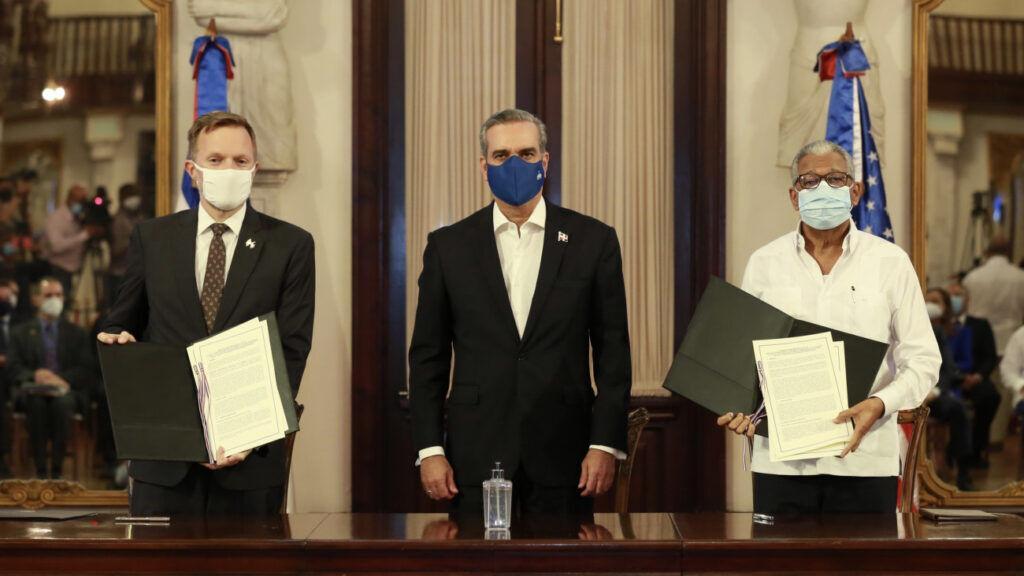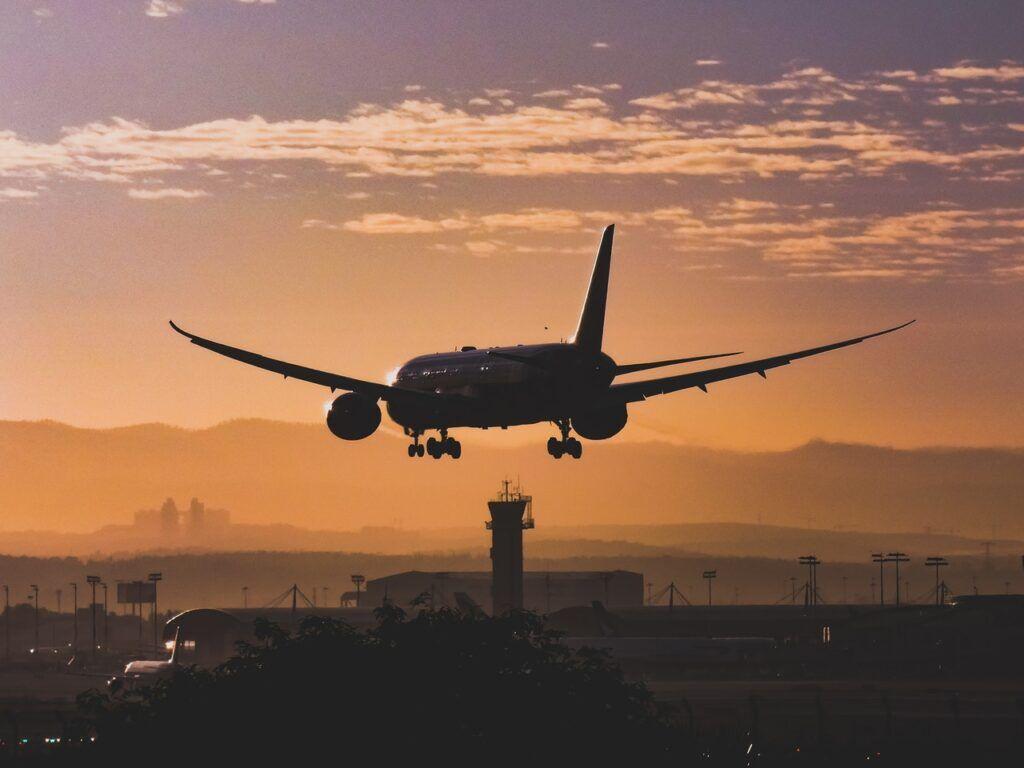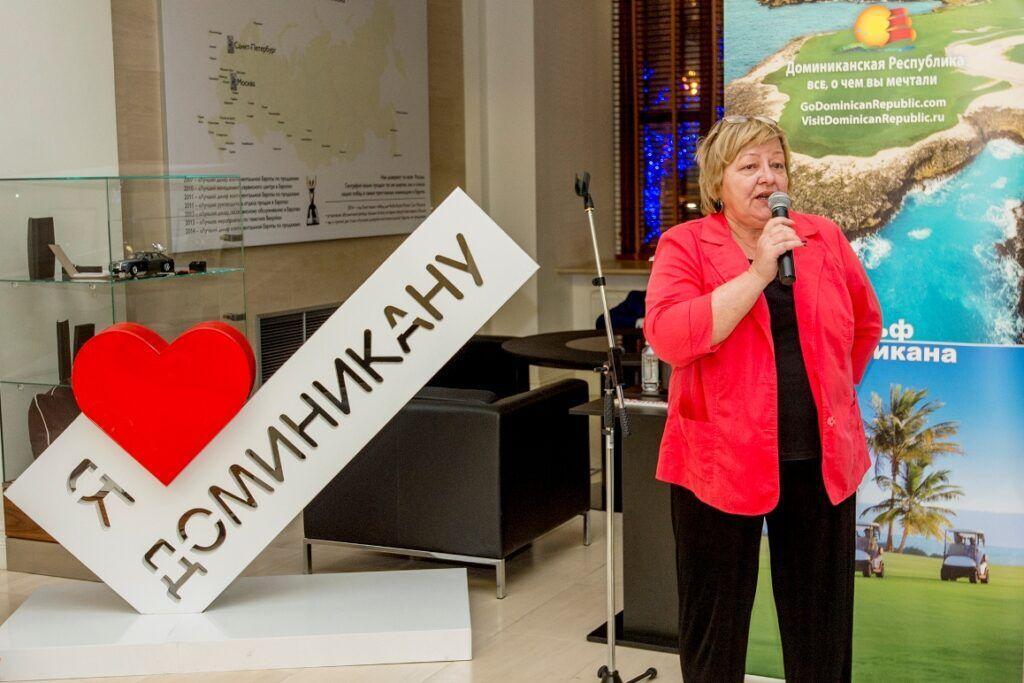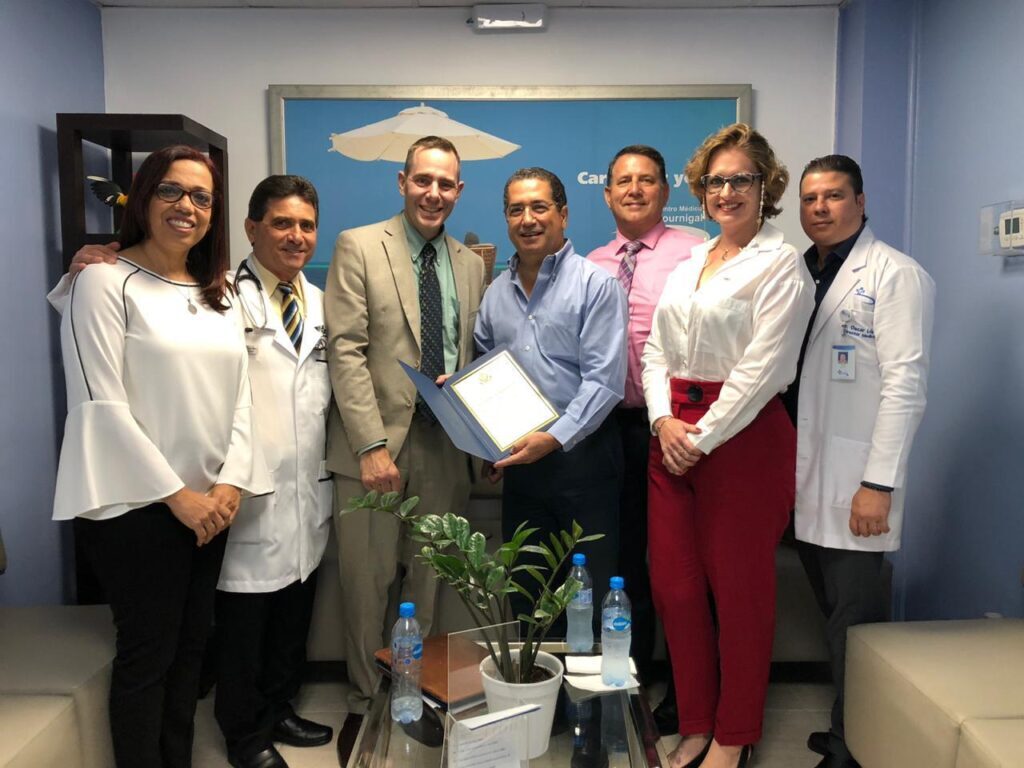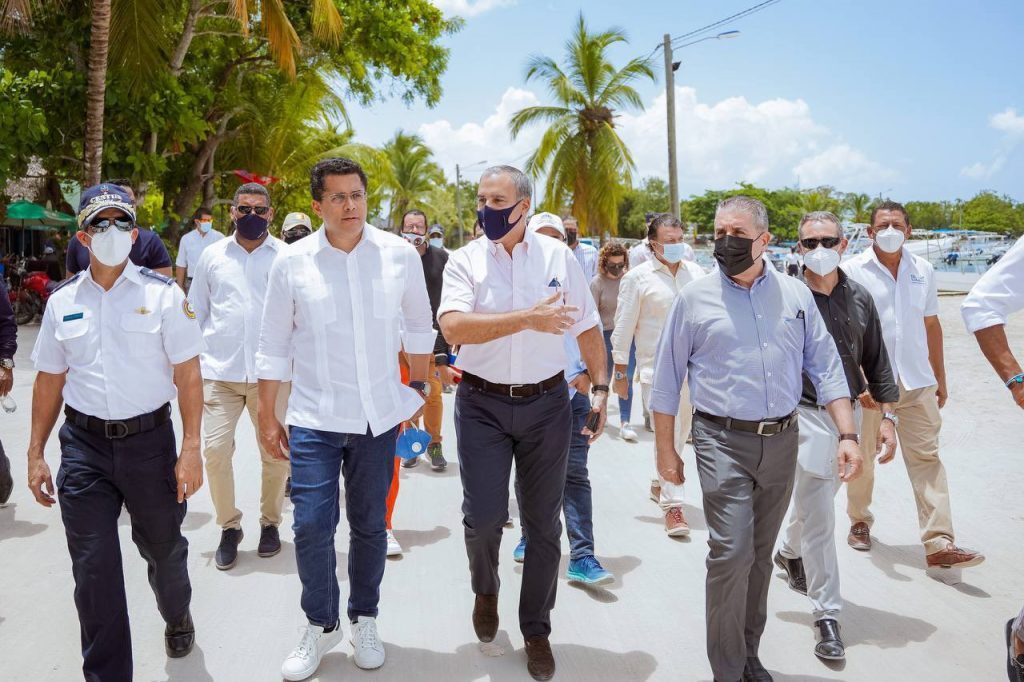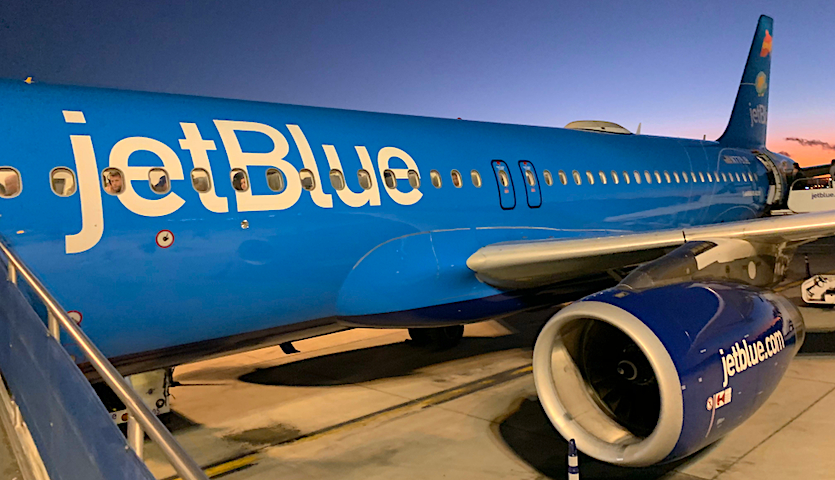Success of Dominican Republic’s tourism sparks interest in Davos
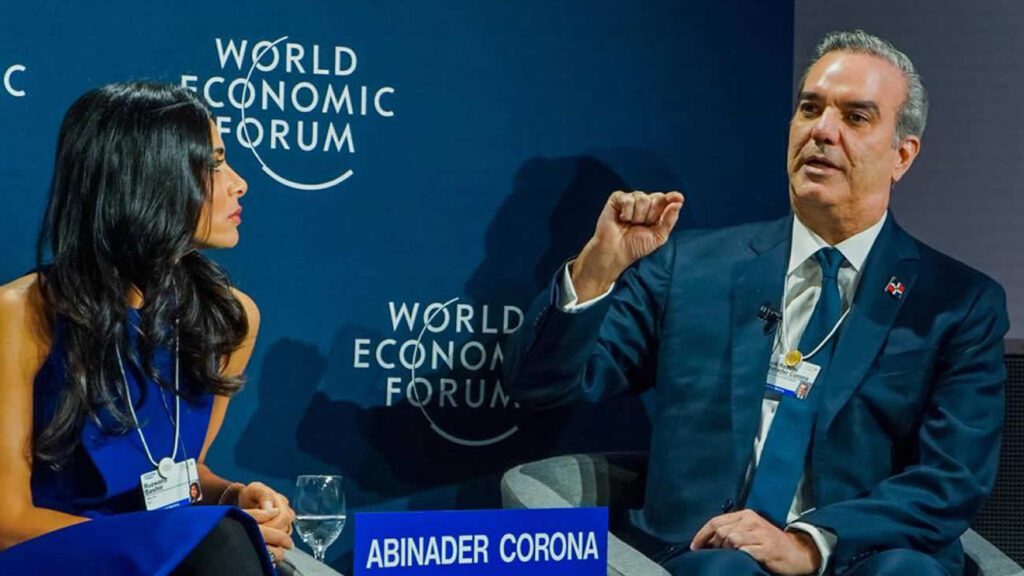
A successful strategy for the recovery of tourism, combined with a consistent effort to care for the health of the people, is the key to the recovery of the economy in the Dominican Republic, and is the reason why the international organizations that deal with tourism, health and the economy present us as a country that has been successful in facing the crisis caused by the pandemic.
The head of State made this approach in a presentation in which he explained these strategies and their results, when participating in the panel “Rethinking and revitalizing travel and tourism”, held on May 23rd at the World Economic Forum that is held annually here, in which the participants spoke about possible policies and actions to reimagine and revitalize this sector.
Abinader’s exposition, like the interventions of the other five speakers, was brief, but once the panel was broadcast on Internet channels, it provoked a series of questions whose answers consumed about 15 minutes of exposition, which turned the president into the center of the informal exchange that took place after the activity.
The panelists who accompanied President Abinader were Keir Simmons, international correspondent for NBC News; Antonio Capuano, CEO of Marriott International; Haifa Bint Mohammed Al Saud, Deputy Minister of Tourism of Saudi Arabia; S. Iswaran, Singapore Transport Minister and Ruzwana Bashir, Peek.com.
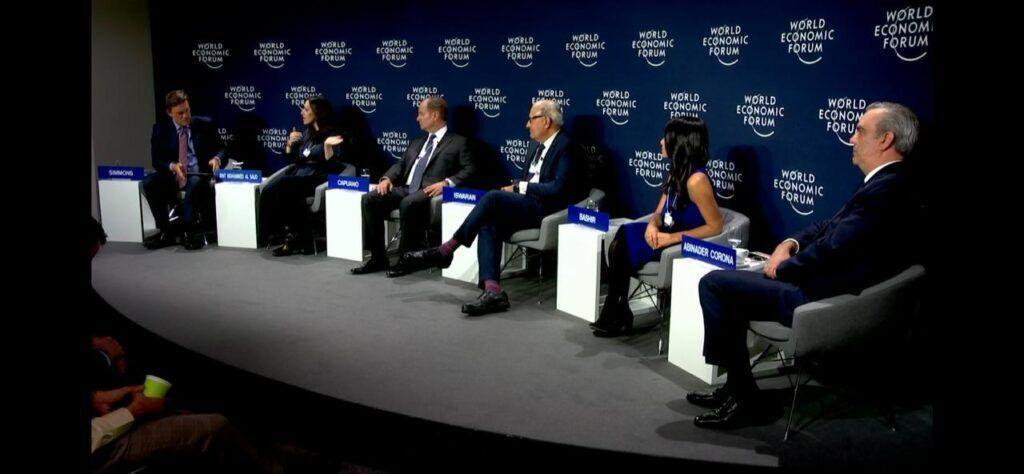
In his first participation in the panel, President Abinader said that the experiences provided by the other participants “are very good”, but to understand what was done in the Dominican Republic, he must explain that he assumed the presidency of the country in August 2020 with the economy and tourism paralyzed.
He explained that, aware that tourism contributes more than 20% of the gross domestic product and around 20% of employment, and analyzing the economic dynamics, “we knew that our economy would not start up if tourism did not recover. We had to strike a balance between preserving the health of our people, but at the same time opening up the economy.”
In his brief account, President Abinader focused on the strategy for tourism and explained that in order to understand how to proceed, surveys and focus groups were carried out in the United States, the main issuing market, which was beginning to open up. We learned, he said, that after months locked up in their homes “people wanted to go out” and were seduced by the image of the sun and beach of the Dominican landscape, but “they were afraid of the consequences of getting sick.”
Analyzing options, he explained, it was decided “to create the only COVID-19 insurance, the only one in the world, that was free for anyone who came to the Dominican Republic. This is how we gained the trust of the people, who began to fly to our country”.
One question from the panel was: “did it cost a lot?”. Abinader responded forcefully: “Yes, it cost, but it cost more if no tourists came. That was the analysis we did. In addition, the insurer was state-owned. But it must also be said that only 0.7% of the tourists we received used it, because they had to take the COVID test when they arrived in the country.”
We started working with insurance, he said, “but at the same time we had one of the fastest vaccination programs in America going, and we also started vaccinating hotel employees.” Our decision was aimed at opening the country to tourism to recover the economy.
At the beginning of the pandemic, President Abinader recounted, we wanted to open hotels that were closed, and we began to finance Dominicans who were interested in visiting them, “because they had to open and be prepared for the winter of 2020 and 2021. This is how tourism internal, which was 8%, increased to 17%, and helped us prepare for the arrival of international tourists; but we also have 2 million Dominicans who live in the US and were the first to come as tourists to the Dominican Republic.”
It was time to open destiny, he said. Now “we are opening a new pole called Pedernales in the south of the country with beautiful beaches. I am happy that the world’s largest hotel companies, starting with Marriott, have already signed an agreement to develop and manage a hotel there.”

